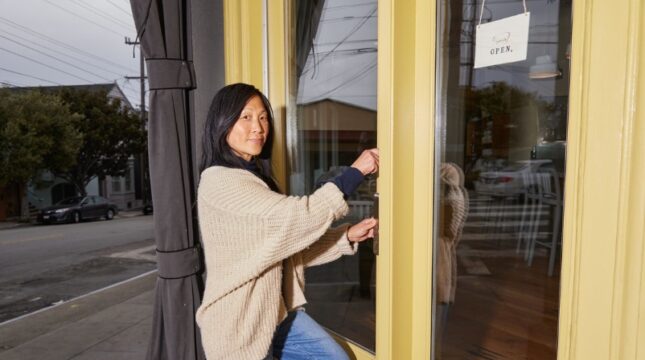Who needs an Illinois food handler certificate?
All employees who work with unpackaged food, food equipment, utensils or food contact surfaces must have a food handler certificate within 30 days of starting their job. This includes waitstaff, chefs, prep cooks, bussers, bartenders and event staff at restaurants, and other food service employees.
Each food service establishment must have at least one certified food protection manager (CFPM) who ensures food safety practices, according to the IDPH. This means you must get this certification if you are a sole proprietor.
Illinois-certified food protection managers don’t need to fulfill the food handler license requirements. Instead, your CFPM will go through a separate certification process.
A few other individuals who may be exempt from the Illinois food handling certificate requirements include:
- Workers who handle and serve pre-packaged items only
- Nursing or therapy staff who deliver trays or assist patients with feeding
- Day care and child care center workers who distribute pre-portioned food
- Volunteers who are not food service establishment employees
Along with ensuring legal compliance with the requirements set out by the state for food handler certificates, Illinois businesses benefit from this training. Ensuring your employees receive proper training in food handling and preparation techniques can reduce the risk of your business causing foodborne illness.
How to get a food handlers license in Illinois
To get a food handling certification, Illinois restaurant workers must complete an American National Standards Institute (ANSI) accredited training course. Courses are available both in person and online.
In these ANSI-accredited courses, you’ll learn about various topics related to safe food handling, including:
- Preventing foodborne illness
- Maintaining personal hygiene
- Cleaning and workspace sterilization
- Cross-contamination awareness
- Time and temperature requirements
Participants must pass an exam about the topics covered in the course to receive an Illinois food handler card or proof of certification.
After successfully completing a course, Illinois workers will receive a card, certificate or a written or electronic list as proof of training. It must include the food handler’s name, training received and the completion date. ANSI-approved training courses issue a certificate with a unique number for each food handler.
As an employer, you are responsible for keeping proof of every employee’s food handler certificate on site. Contact the training program used to verify one of your employee’s food handler certifications.
Although course times can vary, plan on spending approximately two hours to earn a food handling certificate. Illinois workers become certified food handlers as soon as the course is successfully completed. There are many ANSI-accredited training programs, with many offering the option to receive instant proof of certification electronically.
Insurance for Illinois restaurants, caterers, cafes and food service businesses
If you own a restaurant in Illinois, having the right Illinois business insurance can safeguard you against common risks. Consider these types of insurance options for comprehensive protection:
General liability insurance
General liability insurance in Illinois can cover your business financially if you’re liable for property damage or injury to someone else. For instance, it includes coverage for foodborne illnesses, protecting you if a customer gets sick from contaminated or improperly prepared food.
Workers’ compensation insurance
Mandatory in Illinois for businesses with one or more employees, workers’ compensation insurance can help provide crucial coverage for medical expenses and lost wages if an employee gets hurt on the job.
Commercial property insurance
Protect your physical assets, like inventory, furniture and buildings, with commercial property insurance. In case of a covered event such as a burst pipe or vandalism, this insurance may be able to help pay for repairs or replacements for damaged business property.
Commercial auto insurance
Commercial auto insurance is essential if you or your employees drive for business. It pays for medical expenses, property damage and related costs from an accident while driving a company vehicle. Illinois law requires minimum liability coverage for vehicles in the amount of $25,000 per person, $50,000 per accident and $20,000 for property damage.
How much does an Illinois food handlers card cost?
Accredited Illinois food handler courses are available online and in person. While there are no standardized fees for the course, the Food Handling Regulation and Enforcement Act of 2013 requires at least one food handler training option to be available for $15 or less. However, multiple ANSI-accredited training programs are available online for this low price.
Employers are not required to cover the cost of food handler training, although many do. Since the certificate is transferable between employers, it belongs to the food handler and is considered their property.
Illinois food handler certificate renewal
Once you get your ANSI food handler certificate, it’s valid for three years. Generally, you must retake the course and pass the exam to receive a new certification, but there are exceptions.
For instance, those working in a non-restaurant, such as a nursing home, licensed day care, school or retail food store, aren’t required to redo the training unless they change employers.
Food handler card reciprocity in Illinois
In Illinois, any restaurant food handler certification from an accredited program is valid throughout the state. If you have a food handler card from outside Illinois, it can be recognized here as long as it comes from an ANSI-accredited program.
How NEXT helps support Illinois restaurants and food businesses
NEXT has tailored Illinois restaurant insurance coverage for small businesses and self-employed individuals.
It only takes about 10 minutes to get a quote, review coverage options, choose your policies and download a certificate of insurance.
Our team of licensed insurance advisors is standing by to assist you if you have any questions along the way.
Start a free quote with NEXT.






